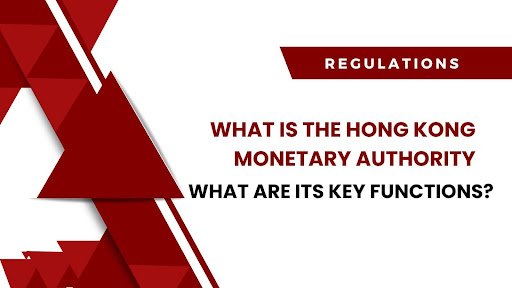The Hong Kong Monetary Authority (HKMA) was established as the de facto central bank of Hong Kong. It plays a crucial role in maintaining and shaping the city’s global financial status.
It is a global financial hub that safeguards the monetary stability and regulates its banking sector. Hong Kong’s foreign currency reserves stood at a strong US$413.1 billion in 2025.
This highlights the HKMA’s capacity to defend the Hong Kong dollar’s peg to the U.S. dollar. It anchored stability and established a 7.75–7.85 HKD/USD exchange range.
Most recent data suggests the resilience of the financial system, which is raising total deposits by 1.4% in January 2025. It includes the surge of 6.5% of renminbi deposits to RMB986.8 billion.
The loan-to-deposit ratio of the Hong Kong dollar has improved by 75.7%. This represents the liquidity management of the HKMA.
These statistics represent the currency stability and financial integrity that Hong Kong has achieved over the years. They also provide oversight to the Exchange Fund and enforcement of anti-money laundering frameworks.
In this blog, we’ll explore the Hong Kong Monetary Authority’s key functions, its structure, career opportunities, including Hong Kong Monetary Authority internship and Hong Kong Monetary Authority jobs, and how to manage the Hong Kong SAR government exchange fund.
| Also Read: Hong Kong Monetary Authority (HKMA) Warns Banks On Risks, Sets Standards For Crypto Staking |
What is the Hong Kong Monetary Authority (HKMA)?
The Hong Kong Monetary Authority (HKMA) is a government entity established on April 1, 1993.
It was established as the de facto central bank of the Hong Kong Special Administrative Region of the People’s Republic of China (HKSAR).
It was settled after the merger of the Office of the Commissioner of Banking and the Office of the Exchange Fund.
It was pointed out by a chief executive who had the same responsibilities as other central banks. The main focus was to stabilize currency and manage the interest rates in the setting of monetary policy.
| 📌 Objectives of HKMA The main objectives of the HKMA include: – Sustaining currency stability – Facilitating the stability and integrity of the financial system – Establishing the Hong Kong Monetary Authority Investment Portfolio – Unfolding Hong Kong’s financial infrastructure |
HKMA is assigned to ensure the stability of the Hong Kong dollar, including the whole economy, through monetary policy as the Hong Kong SAR’s de facto central bank.
It is also tasked to control inflation and develop Hong Kong’s financial system to streamline the money flow.
HKMA links the HKD to the U.S. dollar to ensure the stability of the Hong Kong dollar (HKD) between dominant currencies.
| 📌The HKMA Hong Kong Monetary Authority, operates independently but is overseen closely by the Hong Kong SAR government to implement monetary policies. |
The HKMA is commanded by the Exchange Fund Ordinance. It assists the Financial Secretary and acts as a regulator and supervisor of the financial systems of the HKSAR.
It assists and guides the fight against money laundering and terrorism financing. This authority acts internationally.
As a member of the East Asia and Pacific Central Banks, it works with the People’s Bank of China, the Reserve Bank of Australia, and the Bank of Japan.
| 📌Responsibilities of HKMA Hong Kong’s economy heavily depends on its trading role worldwide, especially with China. As a result, it demands to preserve monetary stability, and the Hong Kong dollar (HKD) is closely tied to the US dollar. It has maintained a fixed exchange range between HKD 7.75 and 7.85 per USD since 1983, with an allowed exchange band. This means the HKMA trade owns substantial foreign currency to keep up with the HKD. The Hong Kong Monetary Authority actively manages this peg to the USD within a narrow corridor of 7.75–7.85. The Hong Kong Monetary Authority uses this mechanism for active intervention and foreign exchange reserves to counteract market pressures. This mechanism is closely associated with the Linked Exchange Rate System (LERS) that uses its Exchange Fund to buy and sell currency. The exchanged funds are also received from the HKD-issued cities’ banks on instructions of the HKMA, including: – Standard Chartered – HSBC – Bank of China Local currency issuance is permitted only when supported by USD. The HKMA is responsible for overseeing the banking sector and regulations to ensure financial stability. Different ordinances empower the investigation of banks to deal with failure, including” – Banking Ordinance – Financial Institutions (Resolution) Ordinance |
Key Functions of the Hong Kong Monetary Authority HKMA
Hong Kong is a financial hub for the People’s Republic of China. It accommodates numerous global corporations.
HKMA is responsible for maintaining Hong Kong as an international financial hub, and it performs several functions, including
1. Sustain Currency Stability
The Hong Kong Monetary Authority, HKMA, upholds the Linked Exchange Rate System by maintaining the stability of the Hong Kong dollar within given frameworks.
These systems operate to stabilize the exchange rates between the U.S. dollar and the Hong Kong dollar. HKMA sustains the parity between the two important currencies with strict rules.
The banks that issue currency are required to provide new notes/currency after storing the same value of U.S. dollars with the HKMA.
This helps HKMA to improve the exchange rates with currency fluctuations at minimum rates.
Different commercial banks authorize the issuing of banknotes, including
- Bank of China
- The Hong Kong and Shanghai Banking Corporation
- Standard Chartered Bank
2. Protect the Integrity of the Financial System
The Hong Kong Monetary Authority, HKMA, is an important financial central hub for the 70 to 100 largest banks in the world. It is the accommodation of more than 29 international banks that operate in different regions and territories.
HKMA protects the regulations and promotes financial integrity. It supervises and oversees banks along with other institutions.
These institutions are involved in lending, investment management, deposit management, and insurance services.
The HKMA Hong Kong Monetary Authority, calls all financial institutions to perform well to maintain sufficient capital to deal with the risks exceptionally.
It also deals with the regulatory frameworks to ensure the regulations align with international standards.
3. Handling Exchange Fund
The Hong Kong SAR government exchange fund serves as the primary investment and strategic financial asset management in Hong Kong.
This fund was settled in 1935. The fund’s initial role was to support the stability of the HK dollar. Over time, the responsibilities expanded that include the management of equity, asset classes, and financial reserves.
By the end of December 2019, the Exchange Fund managed exceeded HK$4 trillion. Its holdings are then divided into three portfolios, including
- backing portfolio
- investment portfolio
- long-term growth portfolio
Collectively, these portfolios supported the resilience and integrity of Hong Kong’s financial system.
4. Keeping Hong Kong as the centre of International Finance
According to the annual GDP report, as an autonomous territory, Hong Kong recorded a GDP of $362 billion in 2018.
The Hong Kong Monetary Authority (HKMA) plays it’s role in maintaining the financial territory as a central hub in the Asian region of the world.
It does so by improving and modernizing the financial infrastructure in line with global standards. It upholds the city’s global reputation as a financial powerhouse.
For instance, in 2018, the Monetary Authority of Hong Kong, HKMA, launched the Faster Payment System (FPS).
This innovative platform enables instant settlements across banks, e-wallets, and other digital payment services.
The payment system made instant money payments easier. They can transfer money to other people using their different methods, including
- phone number
- QR code
- user’s numeric identifier
Transfers can also be processed using standard banking information such as the recipient’s full name and account number.
Career Opportunities at the HKMA
The Hong Kong Monetary Authority career provides opportunities in different sectors, including
- Finance
- Economics
- Technology
- banking supervision
- Fintech
- reserves management
These Roles highlight the innovation, with programs like the Fintech Career Accelerator Scheme
| 📌The Hong Kong Monetary Authority Company Search tool can help businesses and individuals verify their licensed banks and financial institutions. |
Hong Kong Monetary Authority Internship
The Hong Kong Monetary Authority offers internship opportunities and programs to students to get hands-on experience in central banking and financial regulation.
Overview of career path
| Department | Position | Requirement |
| Banking Supervision | Analyst | The requirement includes a Finance/Economics Degree |
| Exchange Fund Management | Investment Manager | It requires CFA/FRM Certification |
| Financial Infrastructure | Fintech Specialist | It requires a Background in computer Science |
- You can check the website(https://www.hkma.gov.hk/eng/) Hong Kong Monetary Authority’s jobs portal or visit the Monetary Authority’s address for direct inquiries.
| 📌Hong Kong Monetary Authority Address It is located at 55/F, Two International Finance Centre, 8 Finance Street, Central |
Recent Developments: Hong Kong Monetary Authority News
The Hong Kong Monetary Authority News highlights the Recent Hong Kong Monetary Authority news highlights green finance frameworks, including
- The Launch of a Digital Currency Pilot Program Enhances Fintech Adoption.
- Provides updates on banking regulations
- The increase in the Hong Kong Monetary Authority Investment Portfolio
Final Thoughts
Handling Hong Kong’s stringent financial regulations is not that complex. If you are a FinTech, a business any other industry, compliance with the Hong Kong Monetary Authority is crucial.
The Hong Kong Monetary Authority (HKMA) is essential for Hong Kong’s financial system, its financial stability, and to management of the Hong Kong SAR government exchange fund.
The Hong Kong Monetary Authority also offers career opportunities. Long story short! HKMA is required to operate and maintain the trust with the financial sector.
People Also Search:
What Is The Monetary Authority of Singapore (MAS), And How does it Lead The Fight Against Financial Crime?











+ There are no comments
Add yours